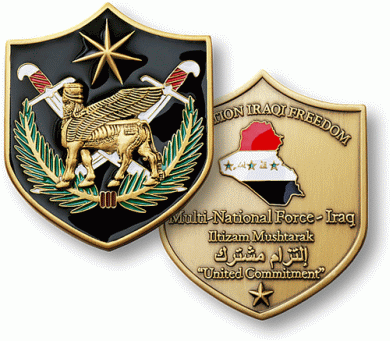Al Sabaah, Iraq
Tentative Deal
Reached for Withdrawal of U.S. Forces
"Baghdad and Washington have set
a time limit for the withdrawal of American forces during 2010 and 2011 subject
to change according to circumstances … The agreement stipulates that arrests by
the American army can only be made with the advance knowledge of the Iraqi
government, and that no violations of the rights of Iraqi citizens will be
permitted. … Iraqi and American negotiating teams also agreed to the return of
all U.S. forces to their barracks."
Translated
By James Jacobson
August
5, 2008
Iraq
- Al-Sabaah - Original Article (Arabic)
Baghdad: According to a
memorandum of understanding to be signed by the two parties after a summary of results
is presented to political leaders, Baghdad and Washington have set a time limit
for the withdrawal of American forces from Iraq during the years 2010 and 2011,
subject to change according to circumstances. In addition, Al-Sabaah has learned of an important meeting held this
morning by several National Assembly bloc leaders, during which a decision was
made to hold a vote on a new provincial election law in the event a
comprehensive agreement could be reached. Otherwise the vote will be postponed,
perhaps until the next legislative term.
Well-informed sources told Al-Sabaah: "the two teams of experts - American and
Iraqi - will present a summary of their discussions to political leaders of
their respective countries over the next few days, stressing that,
"negotiations are continuing between the two parties and are near a
conclusion, which may permit the rapid signing of the Status of Forces
Agreement [SOFA]."
The sources, which spoke in
condition of anonymity, revealed that considerable progress had been made in
the talks and in principal, a bilateral agreement for a withdrawal of American
forces during 2010 and 2011 had been reached, subject to change according to
circumstances.
The withdrawal may be
completed by mid-2010, according to our sources. They also say that a consensus
had been reached regarding the issue of arrests. The agreement stipulates that
arrests by the American army can only be made with the advance knowledge of the
Iraqi government, and that no violations of the rights of Iraqi citizens will
be permitted. Prime Minister Nouri Al-Maliki and American President George W.
Bush agreed last month to uphold a "declaration of intent," that was
signed by the two leaders last year, which called for advancing relations
between Iraq and the United States of America.
During a telephone
conversation, the sources added that Iraqi and American negotiating teams also
agreed to the return of all U.S. forces to their barracks, in addition to
continuing the training of Iraqi forces and preparing them for all necessary
commitments. They confirmed that the political leadership has empowered Prime
Minister Al-Maliki to sign the memorandum of understanding, after a consensus
national position emerged during the course of the talks.

Meanwhile, political factions
are still looking for an overall national consensus on a comprehensive election
law for holding provincial elections, after Monday's National Assembly session
was postponed. First Deputy Chairman of the National Assembly, Sheikh Khaled
Al-Attiyah, told Al-Sabaah
that the Supreme Constitutional Court agreed to extend the work of the Assembly
until a supplementary budget bill could be approved. Sources also revealed to Al-Sabaah that political leaders have tied the approval of
the supplementary budget bill to the passage of the electoral law, to provide
legal cover so a consensus on the electoral law can be reached.
[Editor's Note: Tensions are
high over the new election law, as the legislative polls are expected to
redistribute power in Iraq's 18 provinces in what is considered a necessary
step toward reconciliation. Last time around in January 2005, many Sunni Arabs
boycotted provincial balloting, enabling Shiite Muslims and Kurds to win a
disproportionate share of power. Now the two groups - especially the Kurds, are
sensitive to changes in the law, since they are bound to lose influence. Kurds
particularly reject plans for power-sharing in the ethnically mixed - and oil
rich - city of Kirkuk  ].
].
A sources close to the
meeting held yesterday afternoon in the presence of most of the national
leadership, said that a final meeting would take place today [Aug. 5] between
National Assembly bloc leaders to take a decision on whether to vote on the law
or postpone it, possibly until the next legislative period. If the legislation
is delayed, it would mean that legislative polls would be postponed until next
year.
Posted by WORLDMEETS.US
Moreover, Baghdad has begun
to implement policies characterized by a new openness to all of the world's capitals,
in order to turn a page on the past and the wrong of the former regime. Iraq
wishes to begin new relationships with all countries, especially those in the
region, which will be characterized by cooperation, coordination and
non-interference in the internal affairs of others.
CLICK HERE FOR ARABIC
VERSION
[Posted by WORLDMEETS.US August 6, 12:16am]